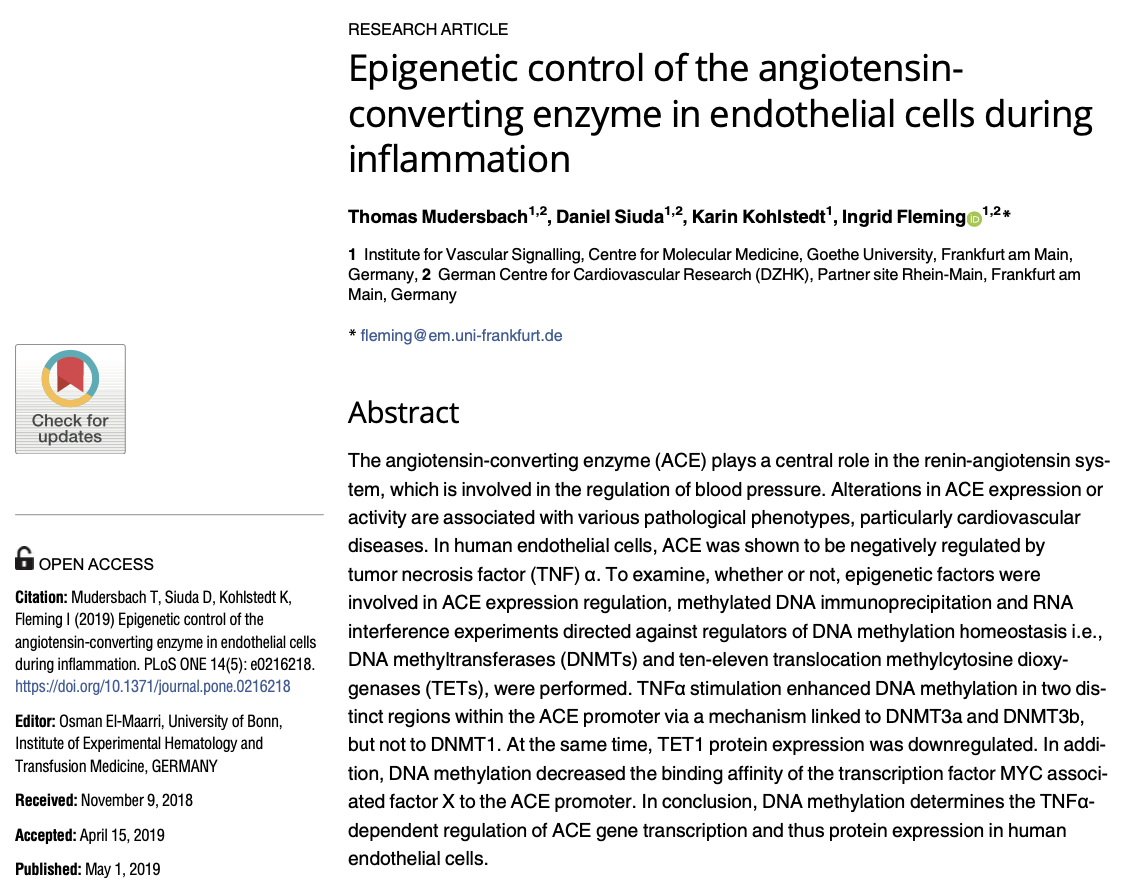
- June 02, 2020
Epigenetic control of the angiotensin-converting enzyme in endothelial cells during inflammation
Thomas Mudersbach, Daniel Siuda, Karin Kohlstedt, Ingrid Fleming|Institute for Vascular Signaling, Centre for Molecular Medicine, Goethe University, Frankfurt am Main, Germany, German Centre for Cardiovascular Research (DZHK), Partner site Rhein-Main, Frankfurt am Main, Germany |2019|PLoS ONE|1495): e0216218
It is known that angiotensin-converting enzyme (ACE) is involved in the pro-inflammatory response as it as it plays a role in angiotensin II generation. Alterations in ACE are associated with inflammatory cardio-vascular diseases. Previous research has shown that human endothelial cells are down-regulated by tumor necrosis factor-α (TNF-α). Other research has also shown that hypo- and hyper-methylation of CpG islands on the ACE gene promoter tend to increase and silence gene expression respectively. There is currently a lack of understanding on the effects of inflammation stimuli on cellular ACE activity. As inflammation leads to DNA hypermethylation, the aim of this study was to assess of the role of DNA methylation in the TNF-α dependent regulation of ACE expression in endothelial cells. This was investigated using ChIP and RNA interference experiments where ACE expression levels were against regulators of DNA methylation homeostasis (DNMTs) and ten-eleven enhanced DNA methylation dioxygenases (TETs). To do this, human endothelial cells were treated with TNF-α for 24 hours and then washed. ACE expression was then monitored for 72 hours using qPCR analysis performed on the MIC qPCR cycler. It was found that TNF-α stimulation enhanced DNA methylation in two distinct regions within the ACE promoter gene via a mechanism linked to DNMT3a and DNMT3b, but not to DNMT1. At the same time, TET1 protein expression was downregulated. In conclusion, DNA methylation determines the TNF-α dependent regulation of ACE gene transcription and thus protein expression in human endothelial cells.
Read More